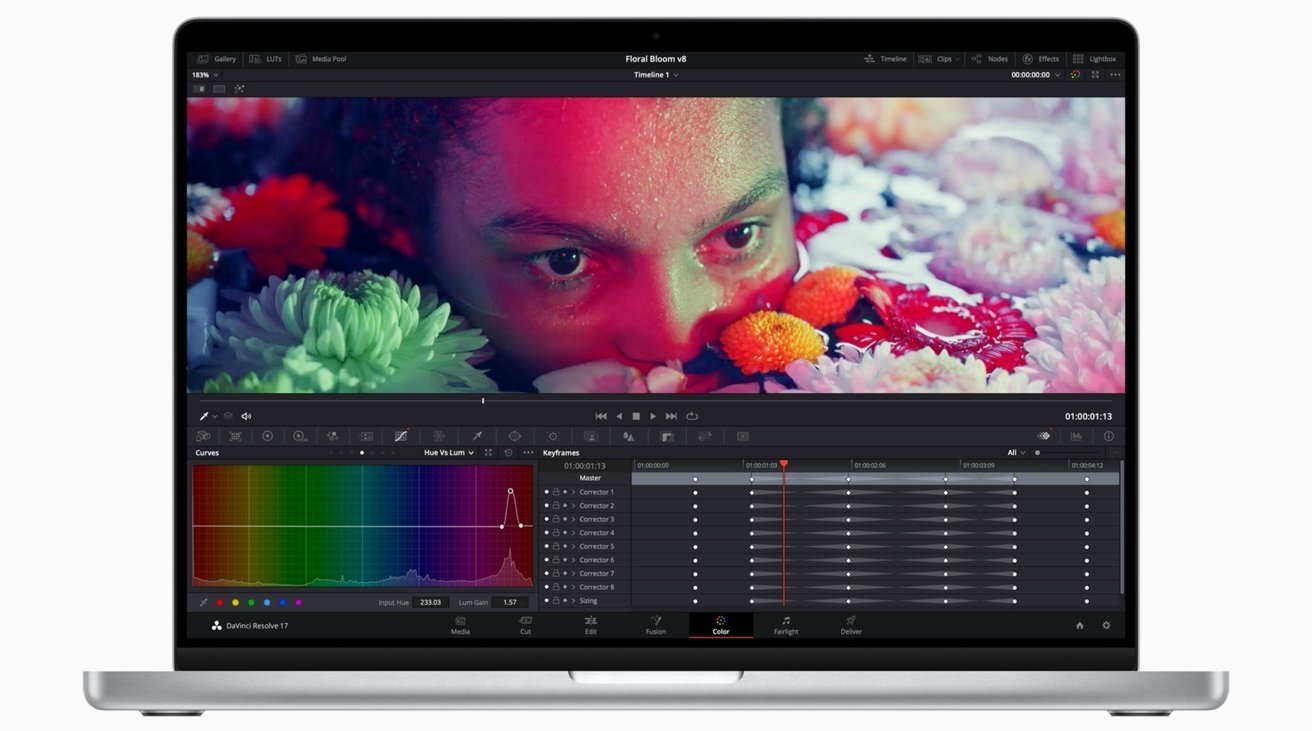A collection of video editors have written an open letter to Apple CEO Tim Cook, accusing Apple of letting Final Cut Pro fall behind rival editing tools, and demanding the company puts more effort to promote it as a professional filmmaking application.
Apple's video production tools, including Final Cut Pro, received updates in April at around the same time as other more major changes to Adobe's tools and Blackmagic Design's DaVinci Resolve. However, in a letter to Apple, editors suggest that Apple isn't pulling its weight to keep Final Cut Pro relevant for professional productions.
The open letter, published on Tuesday and addressed to Cook, is said to be from "professionals working in Hollywood and other high-profile movie and TV markets around the world."
Opening with praise about Final Cut Pro as the "biggest leap forward in editing technology since the move to digital," the letter then complaints some of its signees cannot use it for their work. "Work that could easily include productions for your very own Apple TV+ service," it states.
While admitting Final Cut Pro is successful with a high number of users, the letter insists "unfortunately in professional film and TV, editors who use Final Cut Pro are a tiny minority." Therefore, the editors ask Apple "to promote Final Cut Pro publicly and add the few remaining features that our industry has consistently stated are needed."
This includes public support and certifying suppliers of third-party products and services editors use so that Final Cut Pro can be integrated "into industry-standard workflows." There is also an urging to improve Pro Apps support and for Final Cut Pro to be bought through existing industry suppliers, as "this is essential for big productions to accept Final Cut Pro as legitimate."
The writers believe a renewed public commitment to the professional film industry and Final Cut Pro will increase the number of editors who "would discover the joys of using Final Cut Pro."
"We hope you will encourage our industry to see Final Cut Pro as a professional choice for editors of future award-winning TV shows and movies, and for millions more editors all over the world."
The letter is jointly signed by 112 editors,, directors, and visual effects artists, who worked on projects including "Drive My Car," "War of the Worlds S3," "Bridgerton," and "BBC News."
Among the improvements, signers suggested that it could benefit from a public Beta program, improved collaboration tools, and how it teaches people to edit in the first place. There is also aa call to make it easier to "get permission to edit TV" with the tool, as "you can't use it without fighting producers, directors, post-production supervisors, sound editors, etc."
April 12's updates to Final Cut Pro brought the tool to version 10.6.2, with the main changes revolving around finding duplicated media, machine learning background noise reduction, M1 Max and M1 Ultra optimizations, support for importing Magic Movie and Storyboard projects from iMovie for iOS 3.0, and the addition of Korean language support.
 Malcolm Owen
Malcolm Owen







-m.jpg)







 Bon Adamson
Bon Adamson
 Marko Zivkovic
Marko Zivkovic
 Amber Neely
Amber Neely



 Christine McKee
Christine McKee


-m.jpg)






26 Comments
I’m not sure what this letter seeks to do. I have Final Cut Pro but rarely use it, most of my work uses Resolve, which has become what FCP7 used to be before Apple totally abandoned it. I wouldn’t bet the farm that Apple won’t sell it off to a third party.
because the tight integration and the awesome workflow between Adobe applications saves me tons of hours.
Ok - I reread this reading between the lines I’m guessing they want workflow support for apps like adobe after effects - they might not want to hold their breath on that - the last request is bizarre: